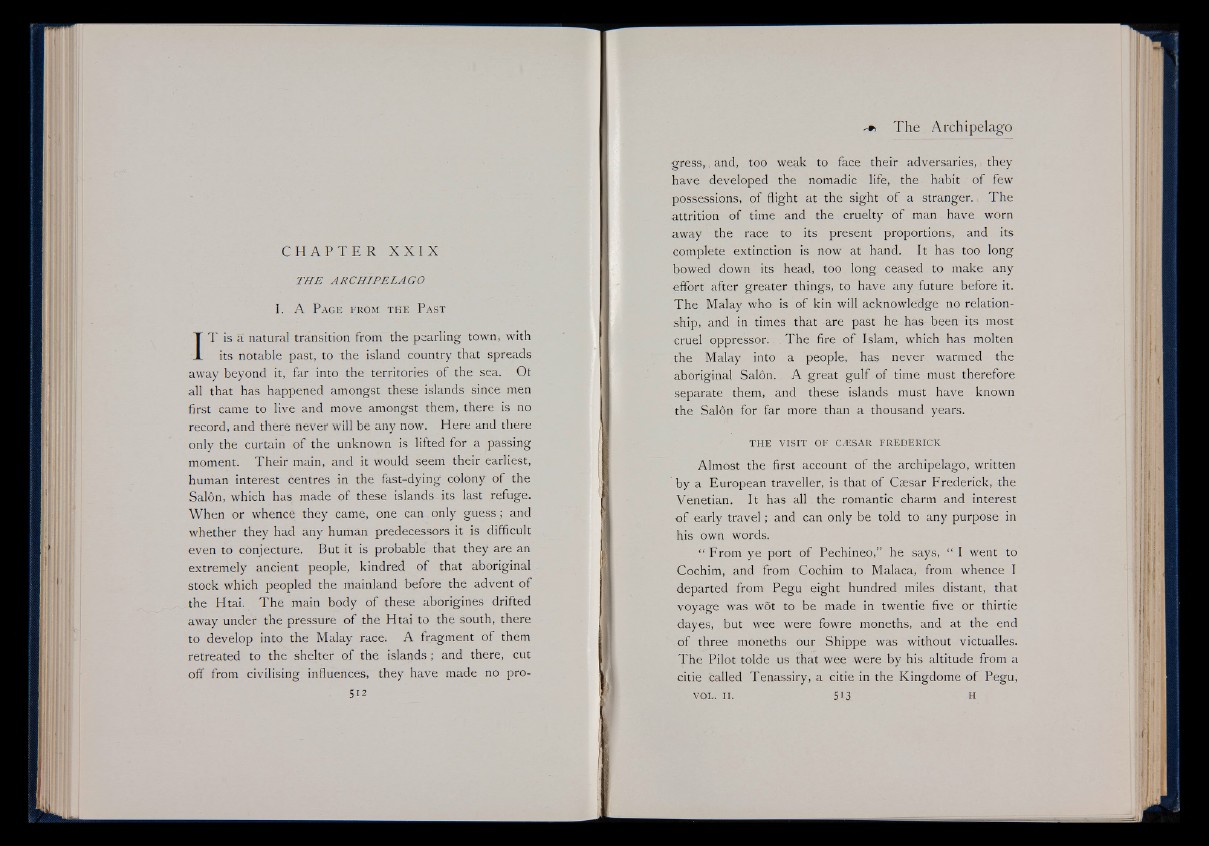
C H A P T E R X X I X
TH E ARCHIPELAGO
I. A P a g e f r om t h e P a s t
IT is à natural transition from the pearling town, with
its notable past, to the island country that spreads
away beyond it, far into the territories of the sea. Ot
all that has happened amongst these islands since, men
first came to live and move amongst them, there is no
record, and there never will be any now. Here and there
only the curtain of the unknown is lifted for a passing
moment. Their main, and it would seem their earliest,
human interest centres in the fast-dying colony of the
Salon, which has made of these islands-its last refuge.
When or whence they came, one can only guess ; and
whether they had any human predecessors it is difficult
even to conjecture. But it is probable that they are an
extremely ancient people, kindred of that aboriginal
stock which peopled the mainland before the advent of
the Htai. The main body of these aborigines drifted
away under the pressure of the Htai to the south, there
to develop into the Malay race, A fragment of them
retreated to the shelter of the islands ; and there, cut
off from civilising influences, they have made no pro-
512
gress,, and, too weak to face their adversaries, they
have developed the nomadic life, the habit of few
possessions, of flight at the sight of a stranger. The
attrition of time and the cruelty of man have worn
away the race to its present proportions, and its
complete extinction is now at hand. It has too long
bowed down its head, too long ceased to make any
effort after greater things, to have any future before it.
The Malay who is of kin will acknowledge no relationship,
and in times that are past he haa been its most
cruel oppressor. The fire of Islam, which has molten
the Malay into a people, has never warmed the
aboriginal Salón. A great gulf of time must therefore
separate them, and these islands must have known
the Salón for far more than a thousand years.
THE VISIT OF C/ESAR FREDERICK
Almost the first account of the archipelago, written
by a European traveller, is that of Caesar Frederick, the
Venetian. It has all , the romantic charm and interest
o f early travel; and can only be told to any purpose in
his own words.
“ From ye port of Pechineo,” he says, “ I went to
Cochim, and from Cochim to Malaca, from whence I
departed from Pegu eight hundred miles distant, that
voyage was wot to be made in twentie five or thirtie
dayes, but wee were fowre moneths, and at the end
of three moneths our Shippe was without victualles.
The Pilot tolde us that wee were by his altitude from a
citie called Tenassiry, a citie in the Kingdome of Pegu,
VOL. II. 5 r 3 h